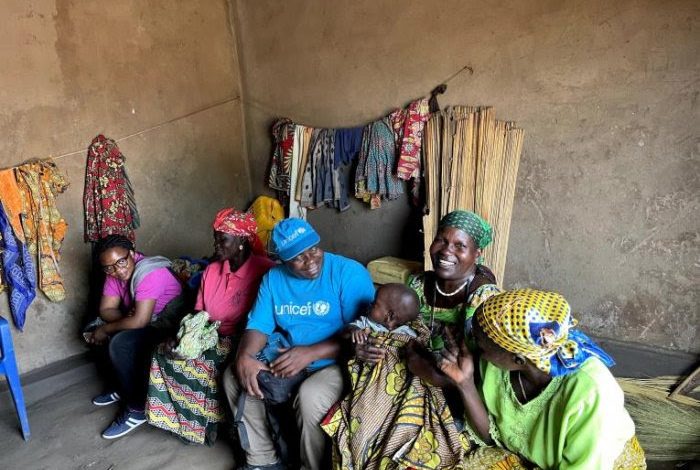Children At Risk Of New Plague Outbreak In DRC – UNICEF
UNICEF has expressed concern over the resurgence of Bubonic plague in the eastern province of Ituri in the Democratic Republic of Congo.

Children are at risk of suffering in the case of a Bubonic plague resurgence in Ituri, an eastern province of the Democratic Republic of Congo (DRC), United Nations Children’s Fund (UNICEF) said in a new report.
According to new research by UNICEF, three health zones in Ituri—Biringi, Rethy, and Aru — showed a recurring outbreak of the disease for the first time in more than a decade.
At least 490 confirmed cases and 20 fatalities were recorded between 2020 and 2021 in the health zones, the research showed. It added that 578 cases and 44 deaths were reported throughout the entire Ituri province.
According to UNICEF, the Bubonic plague, a rare but serious bacterial infection, is transmitted by fleas which are easily treatable with antibiotics. The agency said the centuries-old disease is resurfacing amidst a wave of frequent displacements as a result of insurgency and poverty.
This, UNICEF said, creates a considerable risk of cross-border transmission. “The worrying thing here is, we’ve got plague reported in areas which had not seen a case for 15 years, and more cases in areas where they had very few or none previously,” said Izzy Scott Moncrieff, UNICEF Social Sciences Analytics Cell (CASS) Field Supervisor.
According to Moncrieff, the plague is transmitted in rural areas by fleas carried by wild rats. The rodents in search of food infect domestic animals and livestock before the disease is passed on to humans through flea bites.
The plague outbreak is often blamed on poor sanitation and hygiene practices which attract rats carrying fleas to villages in search of food, infecting people in their homes.
“There are consequences for children because they are exposed to the risk factors of plague,” she said.
She cited the case of Yako Adhiku, who lives in a mud house in the town of Aru first realised her two-year-old daughter, Asizu had caught the plague when the lymph nodes on her neck started to swell.
“She lost her appetite, had a fever and her gums were very red,” Yako said. Worried, she took her to the health centre and was given pills for her child and the whole family.
Yako told researchers that she often saw rats around her home and borrowed a cat to try and keep them out of her house. “The existence of this plague is making us poor,” she told UNICEF researchers. “I have to watch over my sick child, and I don’t have time to go to the fields and farm.”
The UNICEF chief then called for support for plague-affected communities through a rat and flea eradication campaign and the construction of houses that are resistant to rodents and dangerous insects, including the provision of beds for children made from locally available materials.
“We want to give parents the means wherever possible to provide children with beds and stop young people from having to sleep on the ground where they are more exposed to plague through flea bites,” Moncrieff said.
“At the same time, we want to ensure that householders and subsistence farmers can live in a secure environment with the resources to keep their food and livestock safely in separate buildings from where they live and sleep.”
Support Our Journalism
There are millions of ordinary people affected by conflict in Africa whose stories are missing in the mainstream media. HumAngle is determined to tell those challenging and under-reported stories, hoping that the people impacted by these conflicts will find the safety and security they deserve.
To ensure that we continue to provide public service coverage, we have a small favour to ask you. We want you to be part of our journalistic endeavour by contributing a token to us.
Your donation will further promote a robust, free, and independent media.
Donate HereStay Closer To The Stories That Matter




